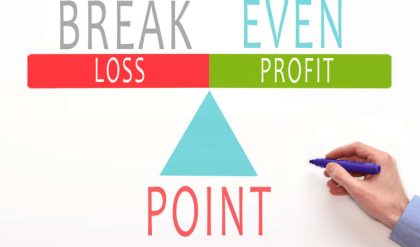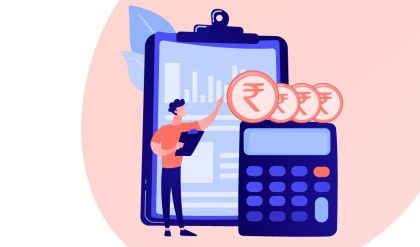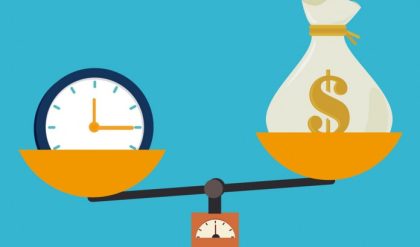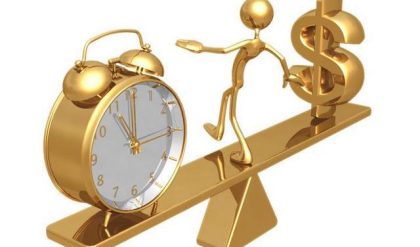Introduction
● Everyone recognizes that physics is a science. Everyone also recognizes economics–a “social science”– is somehow not quite the same as physics in its ability to be science-like. But what is a science and how is economics different? At first glance, a science is a way of thinking that emphasizes putting forward basic hypotheses and then doing controlled experiments that are set up to distinguish in stark relief whether each hypothesis is right or wrong. Clearly economists cannot usually do controlled experiments in a laboratory. Economists often are stuck with using historical or cross-country evidence to tease out what might merely suggest a result. Political viewpoints and the everyday language used in economics make unbiased statements or interpretations of results, or the understanding of ideas, imprecise and easily misinterpreted. Economics is a science in some ways but not others.
● At second glance, though, even the most fundamental scientific aspects of physics are more complicated than the ideal. Real life physics experiments can’t always be set up to test the key hypotheses. Experimental results in physics are never 100% conclusive and are subject to dispute even centuries after the fact. The ideal of creating a physics hypothesis before looking at the evidence is often more of an art than depicted in physics textbooks.
In what ways is economics like an idealized science? unlike an idealized science? Does mathematical modeling make economics closer to being a science than, say, psychology? How can economists keep their own biases in check–and should they? Are there some ideas about which all economists agree? Do disagreements suggest that economics is an exciting, viable academic discipline or a perpetually unresolvable dispute?
Definitions and Basics
● Lionel Robbins, biography, from the Concise Encyclopedia of Economics
● Robbins’ most famous book was An Essay on the Nature and Significance of Economic Science, one of the best-written prose pieces in economics. That book contains three main thoughts. First is Robbins’ famous all-encompassing definition of economics that is still used to define the subject today: “Economics is the science which studies human behavior as a relationship between given ends and scarce means which have alternative uses.”…
● Rosenberg on the Nature of Economics, EconTalk podcast. September 26, 2011.
● Alex Rosenberg of Duke University talks with EconTalk host Russ Roberts about the scientific nature of economics. Rosenberg, a philosopher of science talks about whether economics is a science. He surveys the changes in economics over the last 25 years–the rise of experimental economics and behavioral economics–and argues that economics has become more scientific and that economists have become more aware of flaws in economic theory. But he also argues that economics is unable to make precise predictions about the effects of various changes in policy and behavior. The conversation closes with a discussion of the role the philosophy of science can play in the evolution of economics….
In the News and Examples
● Diane Coyle on the Soulful Science, EconTalk podcast.
● Diane Coyle talks with host Russ Roberts about the ideas in her new book, The Soulful Science: What Economists Really Do and Why it Matters. The discussions starts with the issue of growth–measurement issues and what economists have learned and have yet to learn about why some nations grow faster than others and some don’t grow at all. Subsequent topics include happiness research, the politics and economics of inequality, the role of math in economics, and policy areas where economics has made the greatest contribution….
● Henderson on Disagreeable Economists. EconTalk podcast, July 30, 2007.
● David Henderson, editor of the Concise Encyclopedia of Economics and a research fellow at Stanford’s Hoover Institution, talks with EconTalk host Russ Roberts about when and why economists disagree. Harry Truman longed for a one-armed economist, one willing to go out on a limb and take an unequivocal position without adding “on the other hand…”. Truman’s view is often reflected in the public’s view that economic knowledge is inherently ambiguous and that economists never agree on anything. Henderson claims that this view is wrong–that there is substantial agreement among economists on many scientific questions–while Roberts wonders whether this consensus is getting a bit frayed around the edges. The conversation highlights the challenges the everyday person faces in trying to know when and what to believe when economists take policy positions based on research. Is it biased or science?
● Confirmation bias: A Philosopher’s Take on Political Bias Youtube. A LearnLiberty video.
● Chris Freiman, a philosophy professor at the College of William and Mary, describes the phenomenon of “confirmation bias”: how people look for evidence to confirm their existing beliefs. He shows how confirmation bias plays an important role in citizens’ voting decisions.
● Vernon Smith on Markets and Experimental Economics, EconTalk podcast. May 21, 2007.
● Vernon Smith, Professor of Economics at George Mason University and the 2002 Nobel Laureate in Economics, talks about experimental economics, markets, risk, behavioral economics and the evolution of his career….
● Derman on Theories, Models, and Science, EconTalk podcast. March 12, 2012.
● Emanuel Derman of Columbia University and author of Models. Behaving. Badly talks with EconTalk host Russ Roberts about theories and models, and the elusive nature of truth in the sciences and social sciences. Derman, a former physicist and Goldman Sachs quant [quantitative analyst], contrasts the search for truth in the sciences with the search for truth in finance and economics. He critiques attempts to make finance more scientific and applies those insights to the financial crisis. The conversation closes with a discussion of career advice for those aspiring to work in quantitative finance….
● Weinberger on Too Big to Know, EconTalk podcast. February 27, 2012.
● David Weinberger of Harvard University’s Berkman Center for Internet & Society and author of Too Big to Know, talks with EconTalk host Russ Roberts about the ideas in the book–how knowledge and data and our understanding of the world around us are being changed by the internet. Weinberger discusses knowledge and how it is attained have changed over time, particularly with the advent of the internet. He argues the internet has dispersed the power of authority and expertise. And he discusses whether the internet is making us smarter or stupider, and the costs and benefits of being able to tailor information to one’s own interests and biases.
● Don’t blithely believe every science report you read. Yong on Science, Replication, and Journalism. EconTalk Podcast.
● Ed Yong, science writer and blogger at “Not Exactly Rocket Science” at Discover Magazine, talks with EconTalk host Russ Roberts about the challenges of science and science journalism. Yong was recently entangled in a controversy over the failure of researchers to replicate a highly-cited and influential psychology study. He discusses the issues behind the failed replication and the problem of replication in general in other fields, arguing that replication is under-appreciated and little rewarded. After a discussion of the incentives facing scientists, the conversation turns to the challenges facing science journalists when work that is peer-reviewed may still not be reliable.
● Leamer on Macroeconomic Patterns and Stories, EconTalk podcast. May 4, 2009.
● Ed Leamer, of UCLA and author of Macroeconomic Patterns and Stories, talks with EconTalk host Russ Roberts about how we should use patterns in macroeconomic data and stories about those patterns to improve our understanding of the economy. Leamer argues that economics is not a science, but rather a way of thinking, and that economic models are neither true nor false, but either useful or not useful. He discusses various patterns in the recessions and recoveries in the United States since 1950. The conversation closes with a discussion of the reliability of econometric analysis….
A Little History: Primary Sources and References
● Economics is sometimes called catallarchy or catallactics, meaning the science of exchanges. Where did this term first come from? Lecture I, Introductory Lectures on Political Economy, by Richard Whately.
● It is with a view to put you on your guard against prejudices thus created, (and you will meet probably with many instances of persons influenced by them,) that I have stated my objections to the name of Political-Economy. It is now, I conceive, too late to think of changing it. A. Smith, indeed, has designated his work a treatise on the “Wealth of Nations;” but this supplies a name only for the subject-matter, not for the science itself. The name I should have preferred as the most descriptive, and on the whole least objectionable, is that of CATALLACTICS, or the “Science of Exchanges.”…
● Isn’t economics nicknamed the “dismal science” because it is all about running out of resources and the inevitable decline of life as we know it? Who coined the phrase “the dismal science”? The Secret History of the Dismal Science: Economics, Religion, and Race in the 19th Century, by David M. Levy and Sandra J. Peart. Econlib, January 22, 2001.
● Everyone knows that economics is the dismal science. And almost everyone knows that it was given this description by Thomas Carlyle, who was inspired to coin the phrase by T. R. Malthus’s gloomy prediction that population would always grow faster than food, dooming mankind to unending poverty and hardship.
● While this story is well-known, it is also wrong, so wrong that it is hard to imagine a story that is farther from the truth. At the most trivial level, Carlyle’s target was not Malthus, but economists such as John Stuart Mill, who argued that it was institutions, not race, that explained why some nations were rich and others poor….
Advanced Resources
● Vernon Smith on Rationality in Economics, EconTalk podcast. March 3, 2008.
● Nobel Laureate Vernon Smith of Chapman University and George Mason University talks with EconTalk host Russ Roberts about the ideas in his new book, Rationality in Economics: Constructivist and Ecological Forms. They discuss the social and human sides of exchange, the robust nature of equilibrium in experiments and the real world, the seeming contradiction between Adam Smith’s two great works, the unpredictability of how innovation emerges and its rationality, what neuroscience might tell us about economic decision-making, and the challenges of small-group intimate exchange and our interactions with strangers in the extended order of the marketplace….
● Manzi on Knowledge, Policy, and Uncontrolled. EconTalk Podcast.
● Jim Manzi, author of Uncontrolled, talks with EconTalk host Russ Roberts about the reliability of science and the ideas in his book. Manzi argues that unlike science, which can produce useful results using controlled experiments, social science typically involves complex systems where system-wide experiments are rare and statistical tools are limited in their ability to isolate causal relations. Because of the complexity of social environments, even narrow experiments are unlikely to have the wide application that can be found in the laws uncovered by experiments in the physical sciences. Manzi advocates a trial-and-error approach using randomized field trials to verify the usefulness of many policy proposals. And he argues for humility and lowered expectations when it comes to understanding causal effects in social settings related to public policy.
● Nosek on Truth, Science, and Academic Incentives. EconTalk Podcast.
● Brian Nosek of the University of Virginia talks with EconTalk host Russ Roberts about how incentives in academic life create a tension between truth-seeking and professional advancement. Nosek argues that these incentives create a subconscious bias toward making research decisions in favor of novel results that may not be true, particularly in empirical and experimental work in the social sciences. In the second half of the conversation, Nosek details some practical innovations occurring in the field of psychology, to replicate established results and to publicize unpublished results that are not sufficiently exciting to merit publication but that nevertheless advance understanding and knowledge. These include the Open Science Framework and PsychFileDrawer.





